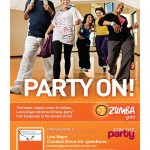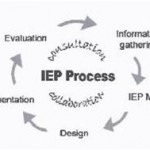Editor’s Note: TheNemoNews readers have asked for some background on a 377 Board as they take interest in the current McHenry County initiative. While Nemo is not a lawyer, we have decided to share our understanding a 377 Board with Nemo readers. A significant portion of this information has been drawn from the Association of Community Mental Health Authorities of Illinois.
Governmental care for those with developmental disabilities is characterized by great need and few resources to meet those needs. Services vary widely by locality, making states very different, and localities very different in the quality of life offered to its dependent citizens. At this time, Illinois suffers from a profound financial shortfall that reaches into the lives of families and individuals with developmental disabilities. Service agencies teeter on the edge of solvency because of slow payment from the State.
Yet the unrelenting need for services confronts everyone associated with the world of developmental disability. The need for planning, assessment and delivery of services relating to housing, transportation, health care, employment, social supports often goes unmet. It is not uncommon to find a 60 year old individual with a developmental disability living with an 80+ year old parent and relying on them for everything. The state is then called in when the caregiver’s health fails. The life of the surviving person is changed forever. Often a lack of local services and facilities requires them to move miles away, into an unfamiliar world with few established supports. Some localities seek to remedy this situation.
A 377 Board is one of three different kinds of taxing authorities allowed by the State of Illinois that localities can use to fund services for individuals who are disabled by mental illness, substance abuse or developmental disabilities. These three are referred to as 708, 377 and 553 Local Mental Health Authorities or Boards. More than one of these authorities can exist in a locality. Some exist in townships, others exist in counties.
The most prevalent kind of board is a 708 — a Mental Health Board. There are 50+ counties with these Boards. Some townships have 708 boards. McHenry County is currently served by a 708 board that allocates approximately 15% of its budget to the care of those with developmental disabilities. This portion does not meet the needs that exist in McHenry County.
A 553 Board is called a Health Department Board. Some health departments are formed under a 553 referendum of voters and become independent taxing authorities. In Chicagoland, Lake, DuPage and Will Counties have 553 Boards. Services for the mentally ill, substance abusers and developmentally delayed individuals are channeled through the health department in those counties. Again, need often overwhelms the department resources.
The 377 Boards address the specific needs of the developmentally delayed. They exist on the county level. There are 14 Illinois counties with 377 Boards, and 4 of these also have a 708 Board. McLean County has a 377 Board and a 553 Board. The 377 legislation calls for a voter referendum to form the Board. The Board is enabled to plan, evaluate and deliver services for the developmentally delayed population in their jurisdiction.








